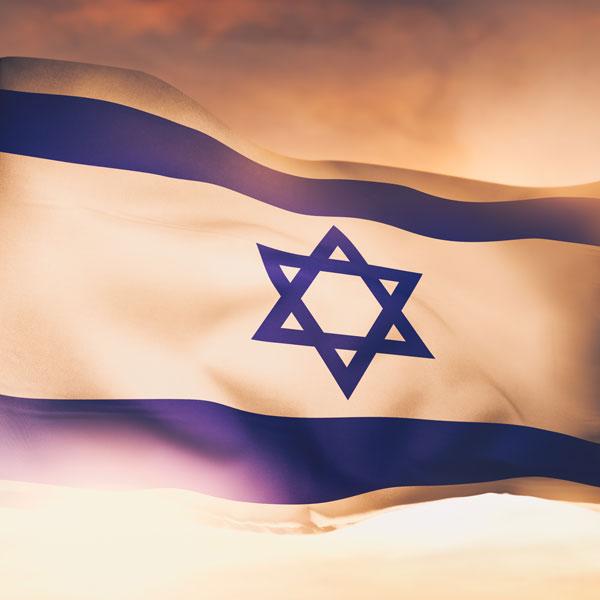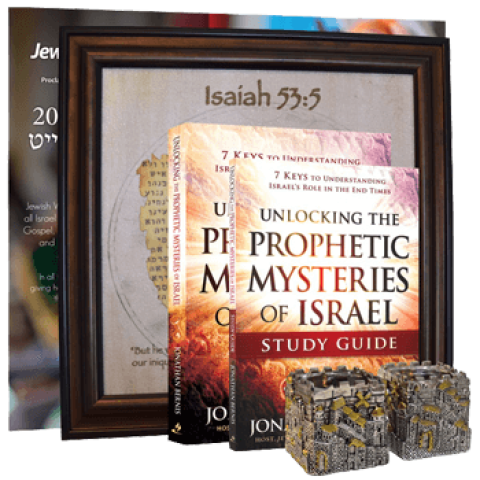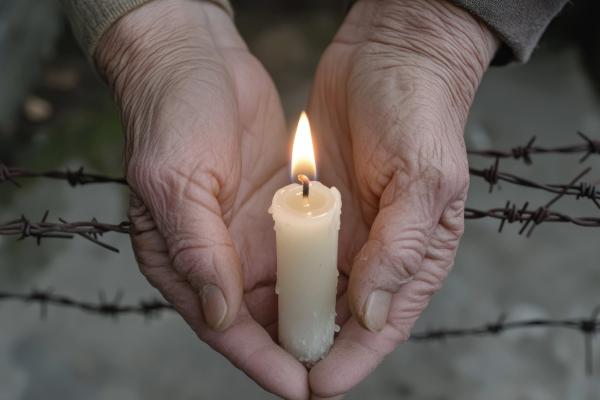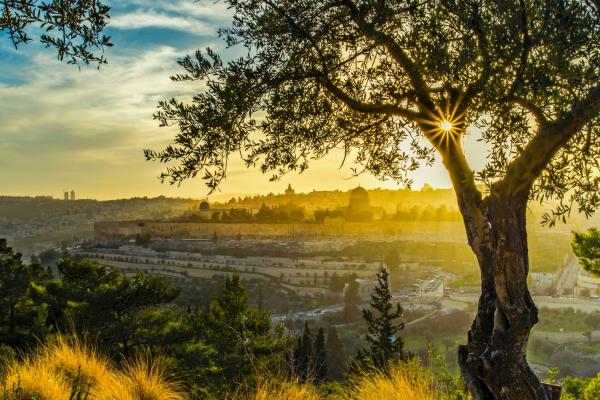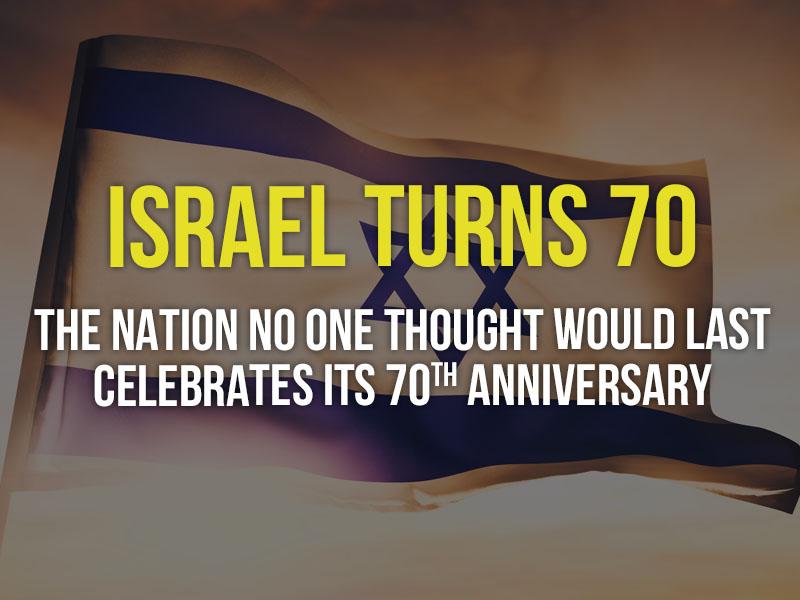
The nation no one thought would last celebrates her 70th anniversary
On May 14, 1948, the fledgling nation of Israel declared her independence. The United Nations granted the Jewish people a national homeland in the Palestinian region of the Middle East. Israel was encompassed by Arab neighbors determined to see her fall, and governments around the world wondered how the tiny nation-state would fare.
Immediately, surrounding Arab countries attacked, confident they’d quickly overpower Israel. But the Jewish State emerged stronger than expected, and this year marks the 70th anniversary of Israel’s rebirth.
The number seven and its multiples figure prominently in the Scriptures. Seven indicates completeness, as God created the world in six days and rested on the seventh. The number 70 bears prophetic significance throughout the Bible: Israel’s 70-year captivity in Babylon, Daniel’s prophecy of 70 weeks, the destruction of the Temple in Jerusalem in 70 A.D. Many believe the 70th anniversary of Israel holds prophetic meaning as well.
Interestingly, there are two days each year that celebrate Israel’s independence. May 14, 1948 was the date on the Gregorian calendar on which Israel became a sovereign nation. On the Hebrew calendar, the date was the 5th of Iyar, which falls in late April or early May each year.
Israel primarily celebrates her Independence Day – Yom HaAtzmaut (YOHM Ha-AHTZ-mah-OOT) – according to the Hebrew calendar and enjoys such festivities as parades, flags, free public shows, and a torch-lighting ceremony. Families gather for picnics and outdoor recreation, the president delivers a speech, and the prestigious “The Israel Prize” is awarded. This award recognizes individual Israelis who have uniquely contributed to the country’s culture, science, arts, and humanities. In 2018, Yom HaAzmaut was April 19th.
You often hear that Israel became a nation “overnight.” It’s true. However, there was much going on in the decades before May 14, 1948, that prepared the soil for the “instant appearance” of the state. For instance:
1897 – The First Zionist Congress met in Basel, Switzerland, organized by Theodore Herzl. The assembly served to unify a previously fragmented movement aiming to establish a Jewish homeland. After the congress, Herzl wrote in his diary, “At Basle [sic], I founded the Jewish state … If not in five years, then certainly in fifty, everyone will realize it” (Jewish Virtual Library).
1917 – The Balfour Declaration was a British statement of support for establishing in the Palestinian region a national homeland for Jewish people. Arthur Balfour, the British foreign secretary, made the declaration in a letter to Lionel Rothschild, a leader of the British Jewish community.
1937 – The Peel Commission sought to resolve the opposing aims of Jewish and Arab people in the area. Both sides had objections to the proposal – the Jewish people because it allotted them significantly less land than originally considered, and the Arabs thought it would make some of their people subject to Jewish “domination.” “Nevertheless, the Zionists decided to negotiate with the British, while the Arabs refused to consider any compromises” (Jewish Virtual Library).
1947 – Since 1922, the British had been charged with governing the Palestinian region and helping establish a Jewish homeland there. Their attempts to reach an agreement suitable to both Jews and Arabs had failed. In February 1947, they turned the matter over to the United Nations. A delegation to the region discovered that the conflicting goals of each party could not be reconciled, and voted to recommend two separate states, Jewish and Arab. In November, the U.N. announced the approval of its Partition Plan giving land to the Jews for a new state. Arab protestors responded almost immediately initiated with a violent backlash.
May 14, 1948 – On the date that the British governance of the Palestinian region expired, Israel proclaimed its independence as a sovereign nation-state. David Ben-Gurion wrote the Israeli Declaration of Independence and read it aloud that Friday afternoon during a short ceremony.
With trust in Almighty God, we set our hand to this Declaration, at this Session of the Provisional State Council, in the city of Tel Aviv, on this Sabbath eve, the fifth of Iyar, 5708, the fourteenth day of May, 1948.
From Israel’s Declaration of Independence (PBS.org)
People danced in the streets because it “was one of the most remarkable, inspiring achievements in human history: A people which had been exiled from its homeland 2,000 years before … but which had refused to relinquish its identity … was returning home as sovereign citizens in their own independent state” (New Essays on Zionism, “Ben-Gurion and the Return to Jewish Power,” Michael B. Oren).
Israel as a nation is a miracle. In fulfillment of Bible prophecy, God brought His people back into the Land He gave them so long ago. We celebrate with Israel the joyous occasion of her return to the Land and independence as a free nation. Happy 70th Anniversary, Israel! Happy Independence Day!
Get the Isaiah 53 Wall Art Package
One of the most powerful Messianic passages in the Holy Scriptures is presented in this beautiful, framed piece of art for your wall. An ancient Hebrew manuscript of Isaiah 53:5 is replicated on an aged parchment-like background.



